
The Untamed Beauty of Comoe National Park
Comoe National Park, located in the northern region of Benin, is a hidden gem for nature enthusiasts and adventure seekers alike. This expansive park is one of the largest protected areas in West Africa, offering visitors an unparalleled opportunity to experience the wild beauty and diverse wildlife of the region. The park is named after the Comoe River, which meanders through its vast landscape, providing a lifeline for the rich flora and fauna that call this area home. Here, you can embark on thrilling safaris to spot elephants, lions, and a variety of antelope species, among other fascinating animals. Bird watchers will also be delighted by the abundance of bird species, making it a perfect destination for ornithologists. Beyond wildlife, Comoe National Park boasts stunning landscapes, from dense forests to open savannahs and serene riverbanks. Visitors can explore the park on guided tours, ensuring a safe and informative experience. The park's remote location offers a tranquil escape from the hustle and bustle of city life, allowing you to immerse yourself in the natural world and create unforgettable memories.
Local tips in Comoe National Park
- Visit during the dry season (November to April) for the best wildlife viewing opportunities.
- Hire a local guide to enhance your safari experience and ensure safety.
- Bring binoculars and a camera with a good zoom lens for bird watching and capturing wildlife moments.
- Pack light, comfortable clothing and sturdy footwear for exploring the park.
- Stay hydrated and use insect repellent to protect against mosquitoes.
The Untamed Beauty of Comoe National Park
Comoe National Park, located in the northern region of Benin, is a hidden gem for nature enthusiasts and adventure seekers alike. This expansive park is one of the largest protected areas in West Africa, offering visitors an unparalleled opportunity to experience the wild beauty and diverse wildlife of the region. The park is named after the Comoe River, which meanders through its vast landscape, providing a lifeline for the rich flora and fauna that call this area home. Here, you can embark on thrilling safaris to spot elephants, lions, and a variety of antelope species, among other fascinating animals. Bird watchers will also be delighted by the abundance of bird species, making it a perfect destination for ornithologists. Beyond wildlife, Comoe National Park boasts stunning landscapes, from dense forests to open savannahs and serene riverbanks. Visitors can explore the park on guided tours, ensuring a safe and informative experience. The park's remote location offers a tranquil escape from the hustle and bustle of city life, allowing you to immerse yourself in the natural world and create unforgettable memories.
When is the best time to go to Comoe National Park?
Iconic landmarks you can’t miss
National Museum Benin City
Discover the legacy of the Benin Kingdom at the National Museum Benin City, where art and history converge to tell a remarkable story.
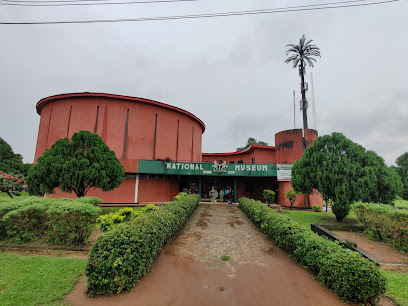
Ogba Zoo, Benin City.
Explore wildlife and nature at Ogba Zoo, a premier attraction in Benin City offering diverse species and beautiful landscapes for an unforgettable experience.
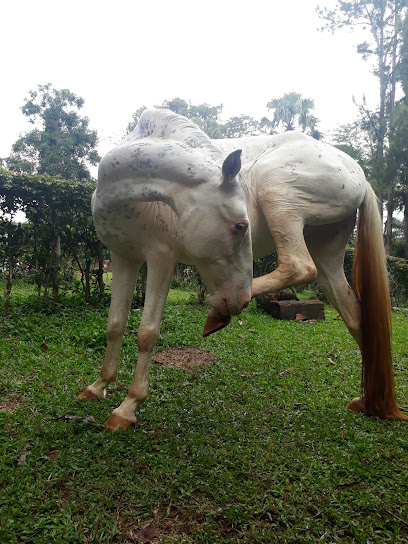
Place GOHO
Explore the rich history and cultural heritage at Place GOHO, a must-visit monument in Abomey, Benin, reflecting the grandeur of the Dahomey Kingdom.
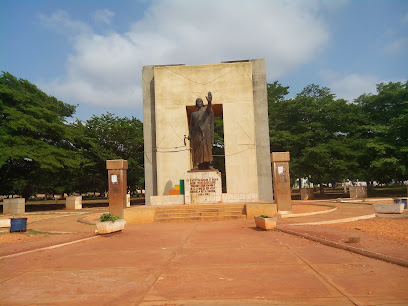
Oba Palace
Discover the rich history and vibrant culture of the Benin Kingdom at Oba Palace, a must-visit cultural landmark in Benin City.
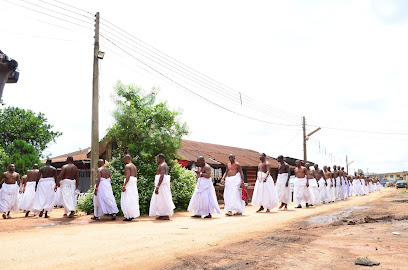
Toffa
Discover Toffa in Porto-Novo, a captivating blend of spirituality and history, showcasing the rich cultural heritage of Benin.
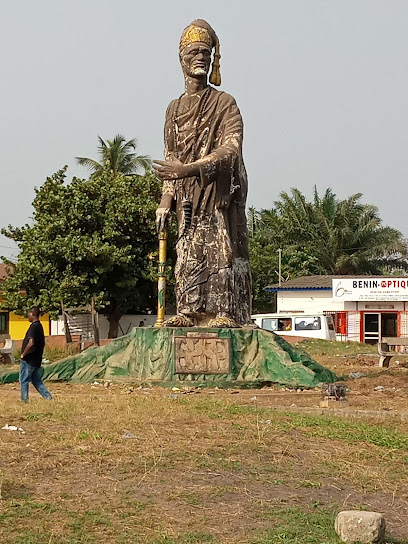
W National Park Benin
Discover W National Park in Benin, a stunning natural haven filled with diverse wildlife, breathtaking landscapes, and rich cultural experiences.
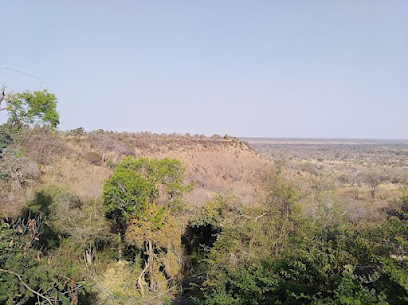
Pendjari National Park
Explore Pendjari National Park, a breathtaking national park in Benin, rich in wildlife and natural beauty, perfect for adventure seekers and nature lovers.
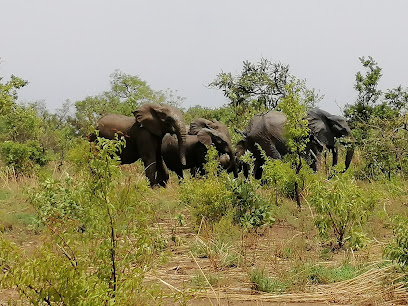
Ogiamien Palace
Explore Ogiamien Palace, a historical gem in Benin City that showcases the rich culture and heritage of the Edo people.
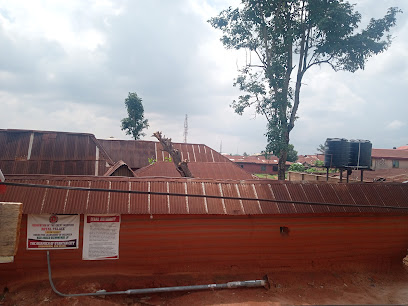
Memorial de Zoungbodji
Explore the Memorial de Zoungbodji in Ouidah, a poignant tribute to Benin's history and culture, reflecting the resilience and heritage of its people.
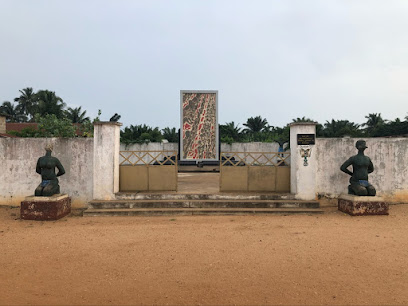
Chutes de Kota
Experience the breathtaking beauty of Chutes de Kota, a stunning waterfall in Koussanzamou, perfect for nature lovers and adventure seekers alike.

Unmissable attractions to see
Dantokpa Market
Explore the vibrant Dantokpa Market in Cotonou, where local culture, crafts, and culinary delights come together in a lively atmosphere.
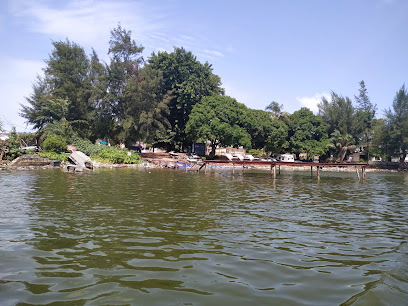
Red Star Square
Explore the vibrant Red Star Square in Cotonou, where history meets contemporary culture in a lively and inviting atmosphere.
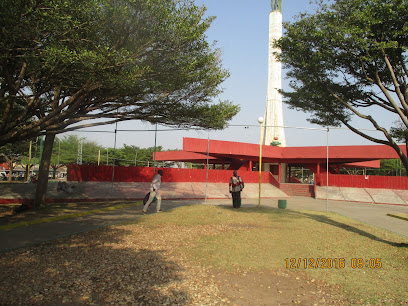
National Museum Benin City
Explore the National Museum Benin City to uncover the rich history and cultural heritage of Nigeria, featuring incredible artifacts and exhibits from the Benin Kingdom.
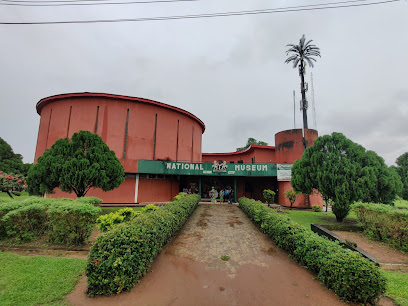
Comoé National Park
Explore Comoé National Park, a UNESCO World Heritage site in Côte d'Ivoire, rich in biodiversity, stunning landscapes, and vibrant wildlife.
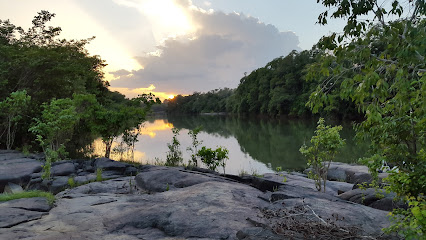
W National Park Benin
Explore the breathtaking wilderness of W National Park in Benin, a UNESCO site rich in biodiversity and stunning natural landscapes.
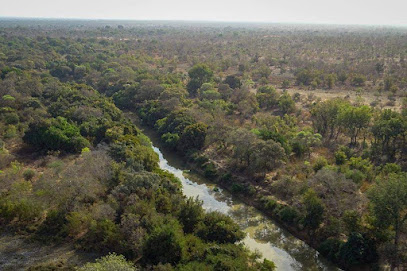
Pendjari National Park
Explore Pendjari National Park – A UNESCO World Heritage site filled with diverse wildlife and breathtaking landscapes in Benin.
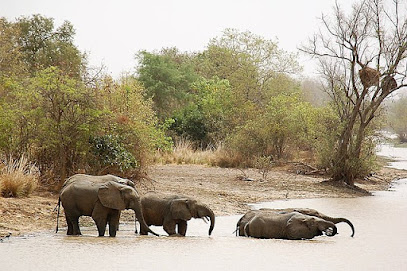
Okomu National Park
Discover the natural wonders of Okomu National Park, Nigeria's hidden gem, where diverse wildlife and lush landscapes await your exploration.
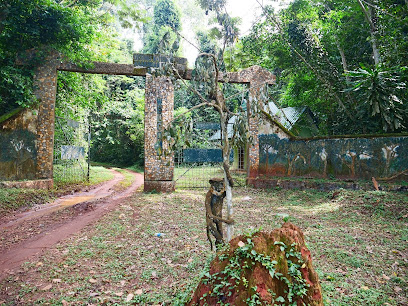
Chutes de Tanougou
Experience the breathtaking beauty of Chutes de Tanougou, a stunning waterfall paradise in Benin, perfect for nature lovers and adventurers alike.
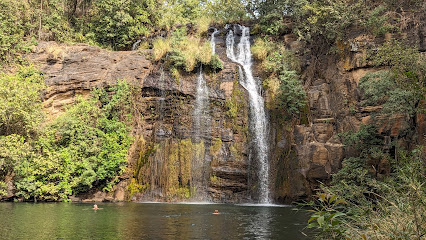
Palais Royal d'Allada
Explore the regal heritage of Allada at Palais Royal d'Allada, a museum showcasing the rich history and culture of the Fon kingdom.
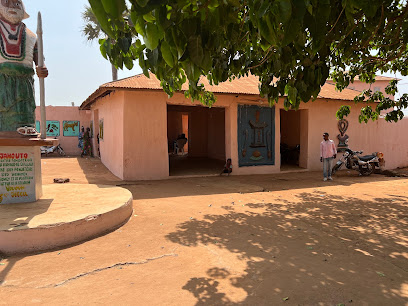
W du Benin National Park
Explore the stunning landscapes and rich biodiversity of W du Benin National Park, a premier nature preserve in the heart of Benin.
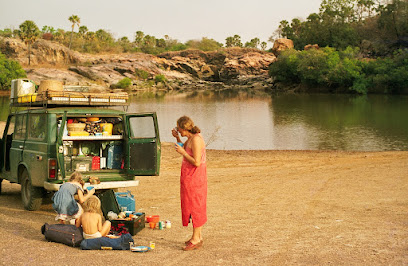
Chutes de Kota
Explore the enchanting Chutes de Kota, a breathtaking waterfall in Benin, where nature's beauty meets tranquility for an unforgettable travel experience.
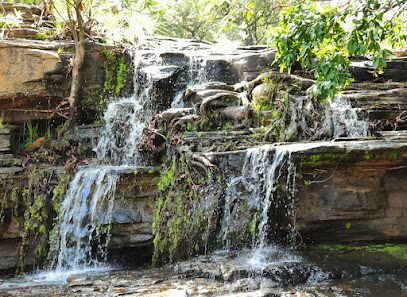
Black River Adjarra
Experience the captivating beauty of Black River Adjarra in Benin, a serene destination filled with nature and adventure.
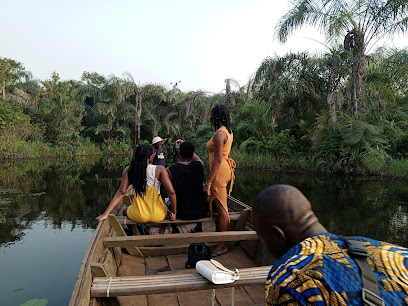
Essential places to dine
Chicken Republic Ugbowom
Experience the vibrant taste of Nigeria at Chicken Republic Ugbowom – where fast food meets authentic flavors.
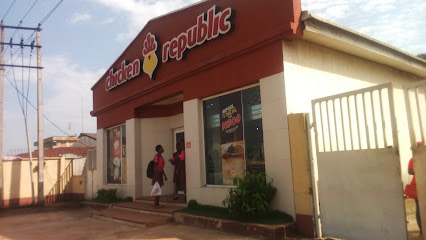
Chicken Republic - Benin 2
Experience the vibrant taste of Nigerian fast food at Chicken Republic - Benin 2 with delicious chicken meals and breakfast options.

GT food plus (New Q)
Experience delicious fast food with local flair at GT Food Plus in Benin City - where every meal tells a story.
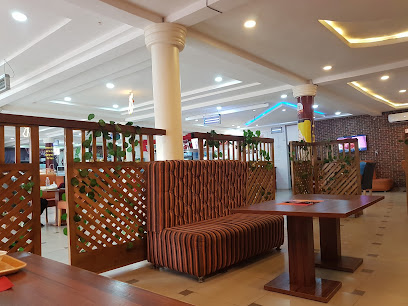
Kateri's Bamboo House (Restaurant)
Discover Kateri's Bamboo House in Benin City – where authentic Chinese meets delightful Asian fusion in a cozy setting.
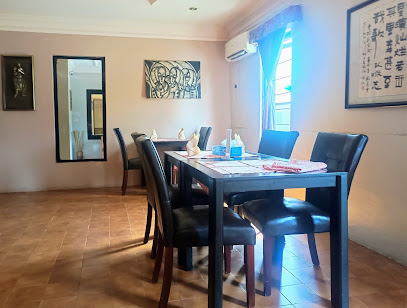
Omega Restaurant
Discover delicious breakfast and fast food options at Omega Restaurant in Uselu, Benin City - where flavor meets convenience.
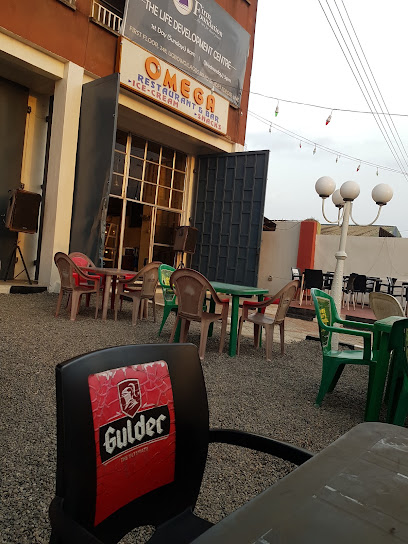
Maquis Super Pili Pili
Experience authentic Beninese cuisine at Maquis Super Pili Pili in Cotonou – where every bite tells a story of flavor and tradition.
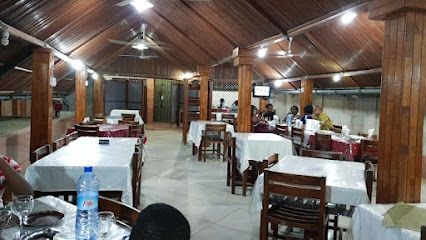
Royal China Restaurant
Discover authentic Chinese flavors at Royal China Restaurant in Benin City – where culinary tradition meets modern dining.
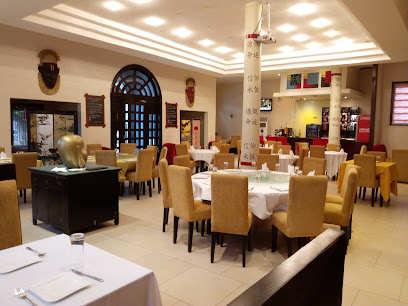
Mama Ebo Pepper Rice
Experience authentic Nigerian cuisine at Mama Ebo Pepper Rice in Benin City, where flavorful dishes meet warm hospitality.
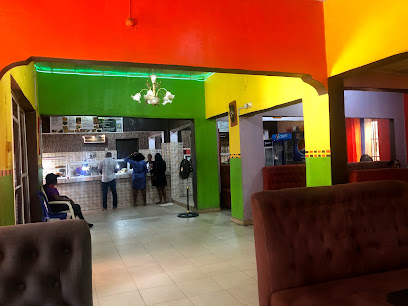
Naira Grill
Discover authentic Nigerian flavors at Naira Grill in Oka – a must-visit restaurant for travelers exploring Benin City.
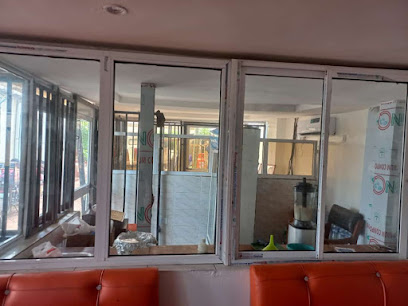
Seven Restaurant Benin
Experience the culinary delights at Seven Restaurant Benin – where local flavors meet international cuisine in a warm atmosphere.
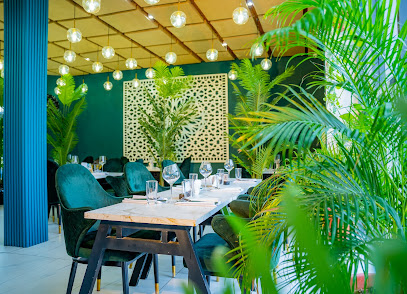
AfricanFoodseum
Experience authentic African cuisine in Porto-Novo at AfricanFoodseum - where every dish tells a story.
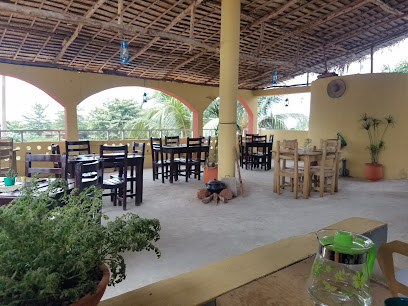
Sweet Mouth
Discover Sweet Mouth in Benin City: A vibrant dining destination serving authentic Edo cuisine with a welcoming atmosphere.
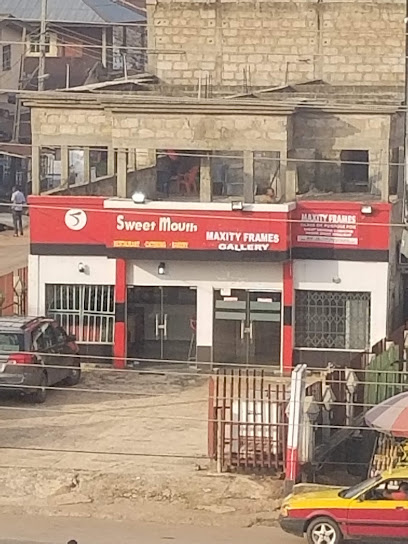
Buka Queen
Discover authentic Nigerian cuisine at Buka Queen in Benin City – where flavor meets tradition in an inviting setting.
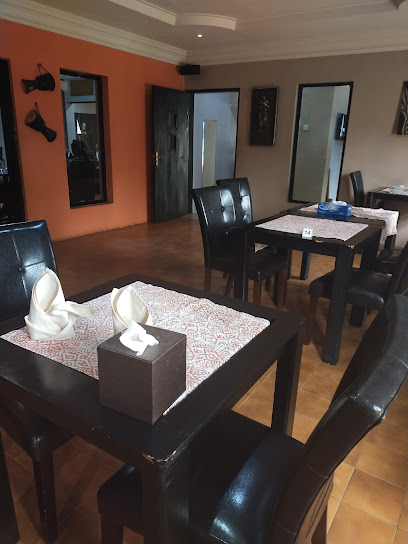
Mat-Ice
Experience fast food bliss at Mat-Ice in Benin City; enjoy delectable meals that satisfy every craving in a lively atmosphere.
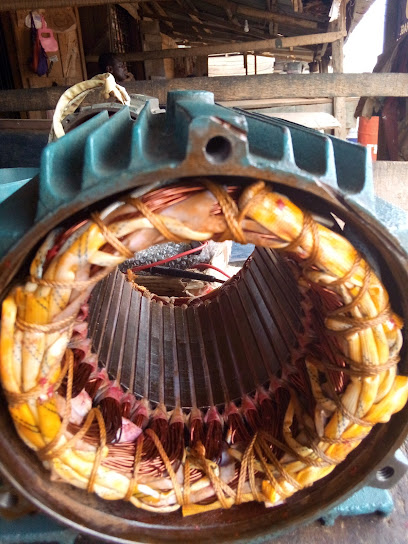
Restaurant L'Amicale
Discover authentic Beninese cuisine at Restaurant L'Amicale in Ouidah – where flavor meets tradition in a vibrant setting.
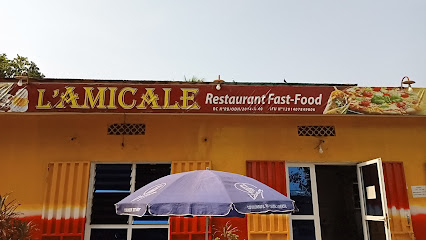
Markets, malls and hidden boutiques
Dantokpa Market
Explore the vibrant Dantokpa Market in Cotonou, where local crafts, delicious street food, and the essence of Beninese culture await you.
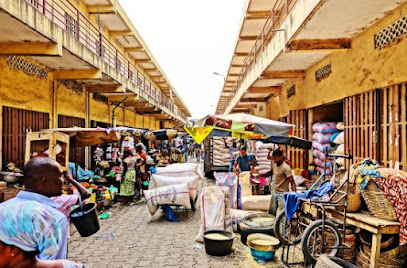
Topnelly
Immerse yourself in the vibrant local culture at Topnelly Market in Cotonou, a treasure trove of fresh produce, crafts, and culinary delights.

Winners Shopping Complex
Explore the vibrant Winners Shopping Complex in Benin City for a unique shopping experience filled with local culture and diverse retail options.
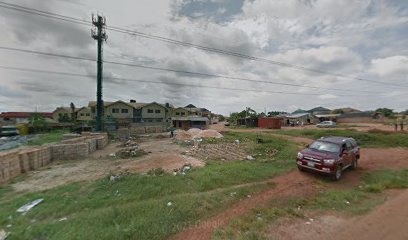
Uyi Accessiores &Beads.ng
Explore exquisite bridal accessories at Uyi Accessiores & Beads in Benin City, where elegance and tradition blend seamlessly for your special day.

Enigma Boutique
Explore the vibrant fashion scene at Enigma Boutique in Benin City, where tradition meets modern style in unique clothing collections.
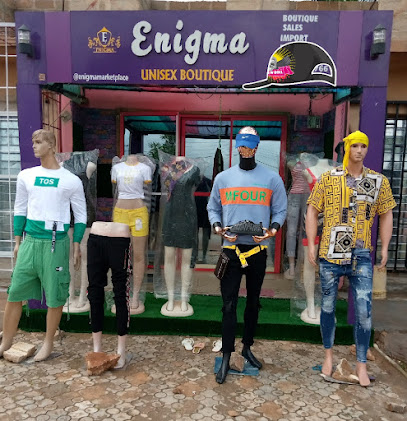
Boutique clothing
Explore a curated selection of stylish men's clothing in Benin City, blending local craftsmanship with contemporary fashion trends.
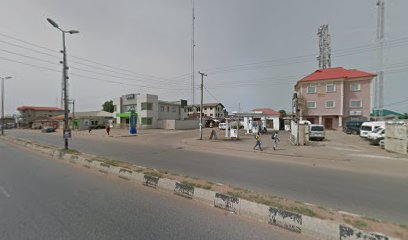
HOUSE OF EBBY
Explore House of Ebby in Benin City, a premier shopping mall for skincare and beauty enthusiasts, blending local culture with modern beauty trends.
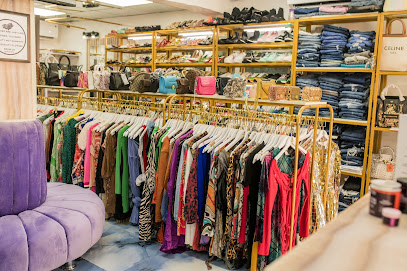
Essential bars & hidden hideouts
Code Bar
Experience the vibrant nightlife at Code Bar in Cotonou, where exceptional drinks and a lively atmosphere await you.
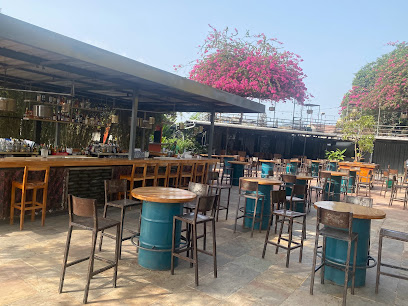
Play House
Discover the heart of Benin City at Play House – a vibrant hotel, bar, and nightclub offering comfort and unforgettable nightlife experiences.

Le Lieu Unique
Experience authentic Beninese cuisine at Le Lieu Unique, a vibrant restaurant in Cotonou that celebrates local flavors and culture.
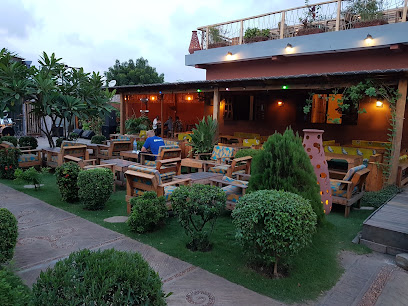
L'Imprévu
Experience the finest of Beninese and international cuisine at L'Imprévu, a must-visit restaurant in Cotonou.
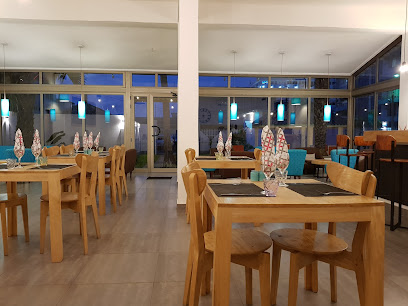
La Villa Classic Lounge Bar
Discover La Villa Classic Lounge Bar in Cotonou for a delightful mix of exquisite drinks, delicious bites, and a vibrant atmosphere.
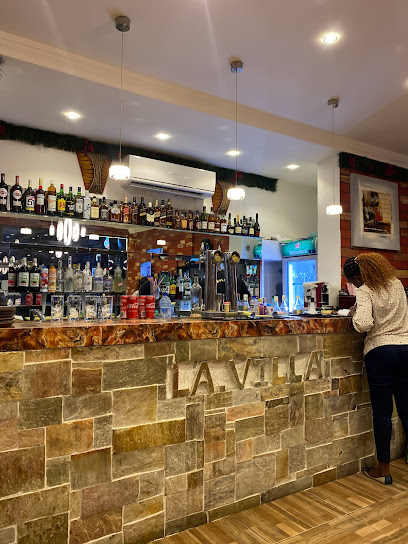
Imperial Bizzo
Experience the vibrant atmosphere at Imperial Bizzo, Benin City's top lounge and restaurant, featuring delicious cuisine and lively entertainment.
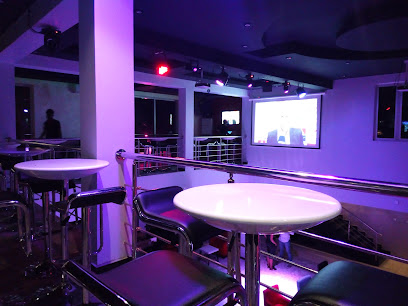
Kateri's Bamboo House (Restaurant)
Discover the vibrant flavors of Chinese, Indian, and vegetarian cuisines at Kateri's Bamboo House in Benin City.
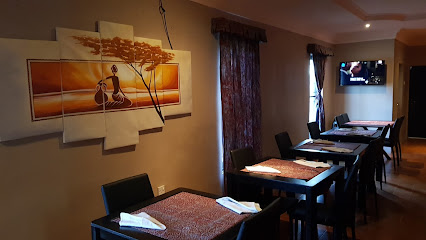
Joker Benin City - Club Joker | Joker Hotel | Joker Kitchen
Experience the vibrant nightlife and exquisite dining at Club Joker in Benin City, where entertainment meets comfort in a unique setting.

Maquis Super Pili Pili
Experience the authentic taste of Benin at Maquis Super Pili Pili in Cotonou, a culinary haven for food lovers.
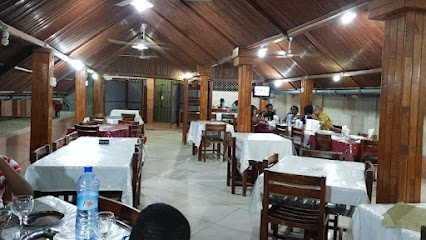
Jammin Bar
Experience the vibrant nightlife of Cotonou at Jammin Bar, where delightful cuisine meets electrifying live music in a lively atmosphere.
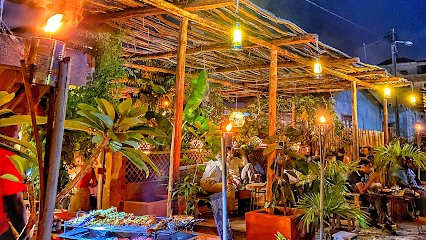
Royal China Restaurant
Experience the essence of Chinese cuisine at Royal China Restaurant in Benin City, where authentic flavors meet welcoming hospitality.
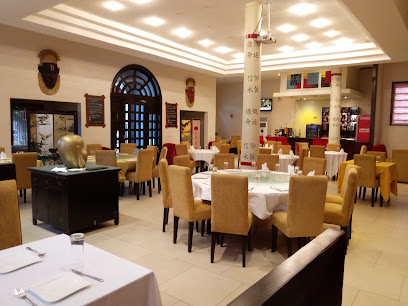
TGV Lounge Bar
Dive into Cotonou's vibrant nightlife at TGV Lounge Bar, where cocktails flow and the music never stops.
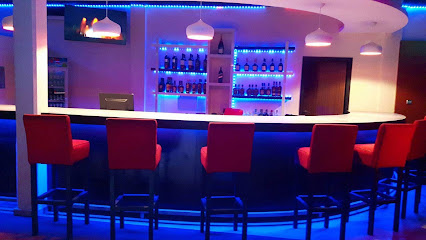
Naira Grill
Experience the best grilled dishes in Benin City at Naira Grill, where vibrant atmosphere meets authentic Nigerian cuisine.
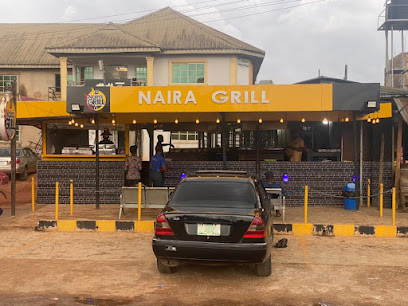
LE BLACK
Experience the electrifying nightlife at Le Black, Cotonou's premier nightclub, where vibrant music meets exquisite cocktails and unforgettable memories.
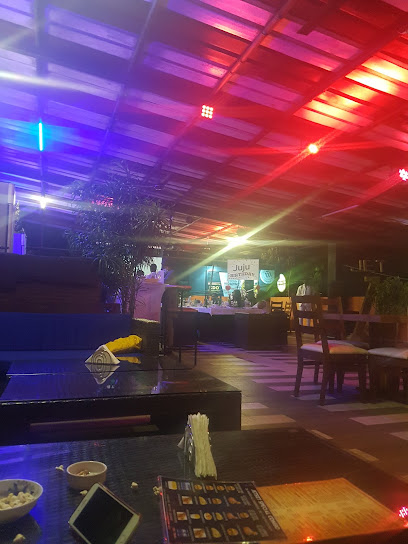
Local Phrases about Comoe National Park
-
- HelloBonjour
[bon-zhoor] - GoodbyeAu revoir
[oh ruh-vwah] - YesOui
[wee] - NoNon
[nohn] - Please/You're welcomeS'il vous plaît/De rien
[seel voo pleh/duh ryen] - Thank youMerci
[mehr-see] - Excuse me/SorryExcusez-moi/Désolé
[ehk-skyoo-zay mwah/day-zoh-lay] - How are you?Comment ça va?
[koh-mohn sah vah] - Fine. And you?Bien. Et vous?
[byen. ay voo] - Do you speak English?Parlez-vous anglais?
[par-lay voo ahn-glay] - I don't understandJe ne comprends pas
[zhuh nuh kohm-prahnd pah]
- HelloBonjour
-
- I'd like to see the menu, pleaseJe voudrais voir la carte, s'il vous plaît
[zhuh voo-dray vwahr lah kart, seel voo pleh] - I don't eat meatJe ne mange pas de viande
[zhuh nuh mahnj pah duh vee-and] - Cheers!Santé!
[sahn-tay] - I would like to pay, pleaseJe voudrais payer, s'il vous plaît
[zhuh voo-dray pay-ay, seel voo pleh]
- I'd like to see the menu, pleaseJe voudrais voir la carte, s'il vous plaît
-
- Help!Au secours!
[oh suh-koo] - Go away!Allez-vous en!
[ah-lay vooz ahn] - Call the Police!Appelez la police!
[ah-pay-lay lah poh-leece] - Call a doctor!Appelez un médecin!
[ah-pay-lay uh may-duh-sahn] - I'm lostJe suis perdu
[zhuh swee pair-doo] - I'm illJe suis malade
[zhuh swee mah-lahd]
- Help!Au secours!
-
- I'd like to buy...Je voudrais acheter...
[zhuh voo-dray ash-tay...] - I'm just lookingJe regarde juste
[zhuh ruh-gard zhust] - How much is it?Combien ça coûte?
[kohm-byen sah koot] - That's too expensiveC'est trop cher
[say troh shair] - Can you lower the price?Pouvez-vous baisser le prix?
[poo-vay voo beh-say luh pree]
- I'd like to buy...Je voudrais acheter...
-
- What time is it?Quelle heure est-il?
[kel er ay teel] - It's one o'clockIl est une heure
[eel ay tun er] - Half past (10)Dix heures et demie
[dees er ay duh-mee] - MorningMatin
[mah-tan] - AfternoonAprès-midi
[ah-pray mee-dee] - EveningSoir
[swahr] - YesterdayHier
[yehr] - TodayAujourd'hui
[oh-zhoor dewee] - TomorrowDemain
[duh-mahn] - 1Un
[uhn] - 2Deux
[duh] - 3Trois
[twah] - 4Quatre
[kaht] - 5Cinq
[sank] - 6Six
[sees] - 7Sept
[sept] - 8Huit
[wheet] - 9Neuf
[nuff] - 10Dix
[dees]
- What time is it?Quelle heure est-il?
-
- Where's a/the...?Où est...?
[oo ay...] - What's the address?Quelle est l'adresse?
[kel ay lah-dress] - Can you show me (on the map)?Pouvez-vous me montrer (sur la carte)?
[poo-vay voo muh mohn-tray (soor lah kart)] - When's the next (bus)?Quand est le prochain (bus)?
[kahn ay luh proh-shahn (bus)] - A ticket (to ....)Un billet (pour ....)
[uhn bee-yay (poor)]
- Where's a/the...?Où est...?
History of Comoe National Park
-
Comoe National Park, located in the northern part of Benin, has been a significant area for human settlement dating back to prehistoric times. Archaeological evidence suggests that various ethnic groups, including the Bariba and the Fulani, have inhabited the region for centuries. These early inhabitants practiced agriculture, hunting, and gathering, forming a deep connection with the land and its biodiversity.
-
During the late 19th and early 20th centuries, the area that is now Comoe National Park came under French colonial rule. The French administration recognized the ecological value of the region and began to implement conservation measures. However, the local communities faced disruptions to their traditional way of life due to colonial policies, including forced labor and land appropriation.
-
Comoe National Park was officially established in 1961, shortly after Benin gained independence from France. The park was created to protect the unique savanna and woodland ecosystems, as well as the diverse wildlife, including elephants, lions, and various bird species. The establishment of the park marked a significant step in Benin's commitment to conservation and sustainable tourism.
-
In 1983, Comoe National Park was designated as a UNESCO World Heritage Site due to its outstanding biodiversity and the presence of numerous endangered species. This international recognition helped to raise awareness about the park's ecological significance and attracted researchers and ecotourists from around the world.
-
The park holds cultural importance for the local communities, particularly the Fulani and Bariba peoples. Traditional practices, such as pastoralism and seasonal migrations, are still observed within the park's boundaries. Sacred sites, including groves and rivers, are respected and protected by both the local communities and park authorities, reflecting a harmonious relationship between nature and culture.
-
In recent years, Comoe National Park has benefited from various conservation initiatives aimed at preserving its unique ecosystems and wildlife. These efforts include anti-poaching campaigns, wildlife monitoring programs, and community-based conservation projects. Collaborative efforts between the government, non-governmental organizations, and local communities continue to play a crucial role in ensuring the park's sustainability and resilience.
Comoe National Park Essentials
-
Comoe National Park is located in the northeastern part of Benin. The nearest international airport is Cadjehoun Airport in Cotonou, approximately 600 kilometers away. From Cotonou, you can hire a private car or take a bus to the town of Natitingou, which is a common gateway to the park. The journey typically takes around 10 to 12 hours by road. Alternatively, you can take a domestic flight from Cotonou to Parakou and then continue the journey by road, which shortens the travel time.
-
Inside Comoe National Park, the best way to get around is by renting a 4x4 vehicle, as the terrain can be challenging. Guided tours are also available and are recommended for a comprehensive experience. Local taxis and moto-taxis (motorcycle taxis) are available for shorter trips within nearby towns. Buses and minibuses (bush taxis) operate between major towns and villages.
-
The official currency in Benin is the West African CFA Franc (XOF). Credit cards are accepted in some hotels, restaurants, and shops in larger towns, but it is advisable to carry cash, especially when traveling to rural areas and within the park. ATMs are available in major towns like Natitingou, but it is wise to withdraw sufficient cash in Cotonou before traveling.
-
Comoe National Park is generally safe for tourists. However, it is recommended to take standard precautions. Avoid walking alone at night in unfamiliar areas and keep an eye on your belongings in crowded places. Exercise caution in remote areas and always follow the guidance of park rangers. Be aware that some areas in larger towns have higher crime rates, so stay vigilant and avoid displaying valuables.
-
In case of emergency, dial 117 for police assistance and 118 for medical emergencies. It is recommended to have travel insurance that covers medical emergencies. The nearest major hospital is in Natitingou, but there are smaller clinics in towns around the park. For minor health issues, there are pharmacies in Natitingou and other nearby towns.
-
Fashion: Do dress modestly, especially in rural areas and when visiting local communities. Avoid wearing revealing clothing. Religion: Do respect local customs and traditions, which are often influenced by animist beliefs and Christianity. Public Transport: Do be respectful and give up your seat to elderly passengers. Don't eat or drink on public transport. Greetings: Do greet people with a handshake and a friendly smile. A slight bow of the head is also a sign of respect. Eating & Drinking: Do try local delicacies and accept food offerings graciously. Don't refuse hospitality, as it is considered impolite.
-
To experience Comoe National Park like a local, consider visiting during local festivals or market days in nearby towns. Engage with locals, as they are often friendly and willing to share stories about their culture and traditions. Take guided walking tours to learn about the unique flora and fauna of the park. For a unique experience, consider staying in eco-lodges or community-run guesthouses to support local conservation efforts.
Nearby Cities to Comoe National Park
-
Things To Do in Sunyani
-
Things To Do in Bobo-Dioulasso
-
Things To Do in Tamale
-
Things To Do in Yamoussoukro
-
Things To Do in Kumasi
-
Things To Do in Koudougou
-
Things To Do in Dédougou
-
Things To Do in Daloa
-
Things To Do in Abidjan
-
Things To Do in Ouagadougou
-
Things To Do in Ziniaré
-
Things To Do in Koforidua
-
Things To Do in Sekondi-Takoradi
-
Things To Do in Takoradi
-
Things To Do in Cape Coast








